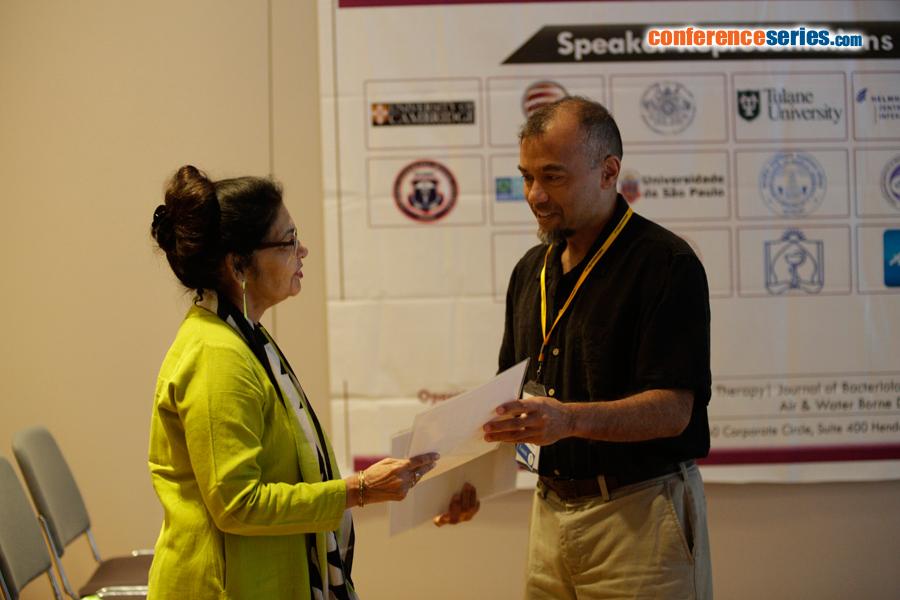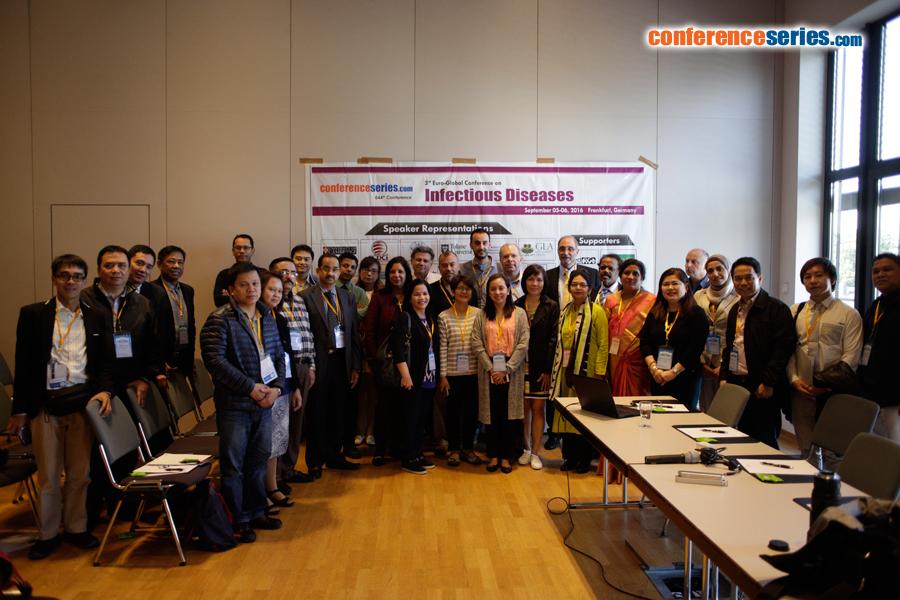Praveen Rishi
Panjab University, India
Title: Topical delivery of hybrid antimicrobial peptide for managing Acinetobacter infected wounds: a novel therapeutic option
Biography
Biography: Praveen Rishi
Abstract
Multidrug resistant Acinetobacter baumannii is recognized to be among the most difficult antimicrobial resistant Gram negative bacilli to control and treat. It survives for prolonged periods under a wide range of environmental conditions and causes outbreaks of serious infections including bacteremia, pneumonia, meningitis, urinary tract infection and wound infection. Antimicrobial resistance greatly limits the therapeutic options for patients who are infected with this organism. Therefore, there is a need to look for alternate treatment options like bio-therapeutics including antimicrobial peptides of prokaryotic or eukaryotic origin. In the light of the present scenario, efficacy of a designer alpha helical peptide, a hybrid of cecropin, melittin and magainin 2 was evaluated. In vitro effectiveness of the peptide against A. baumanii was evaluated by determining the Minimum Inhibitory Concentration which was found to be in the range of 2-4 μg/ml. To get an insight of mode of action of this peptide, various techniques like Transmission Electron Microscopy, Scanning Electron Microscopy, Confocal microscopy and Flow cytometry were employed. The SEM and TEM studies indicated that the peptide could bring significant morphological changes like damaged membrane and leakage of cytoplasmic content. Furthermore, Confocal microscopy and Flow cytometry confirmed that membrane permeabilization of A. baumanii cells by the hybrid peptide in a time dependant process. Inspired by the in vitro findings, therapeutic potential of this peptide was evaluated in murine excision wound model infected with A. baumanii. For this, a hydrogel formulation was prepared for evaluating its efficacy in terms of body weight, wound size contraction, bacterial load and histo-architectural alterations. Results were recorded on day 1, 3,7,15 and 21 post-infection. There was a significant decrease in the body weight of mice that were infected with A. baumanii whereas the loss was restored in the treatment group. The bacterial burden in the treatment group was significantly reduced in comparison to the untreated group. A speedy contractile healing of the wound was observed in case of the group receiving the treatment which further correlated well with the histological studies. The observations from the study indicate that the peptide appears to be a good therapeutic option for developing newer treatment strategies against multidrug resistant strains.
Speaker Presentations
Speaker PPTs Click Here





